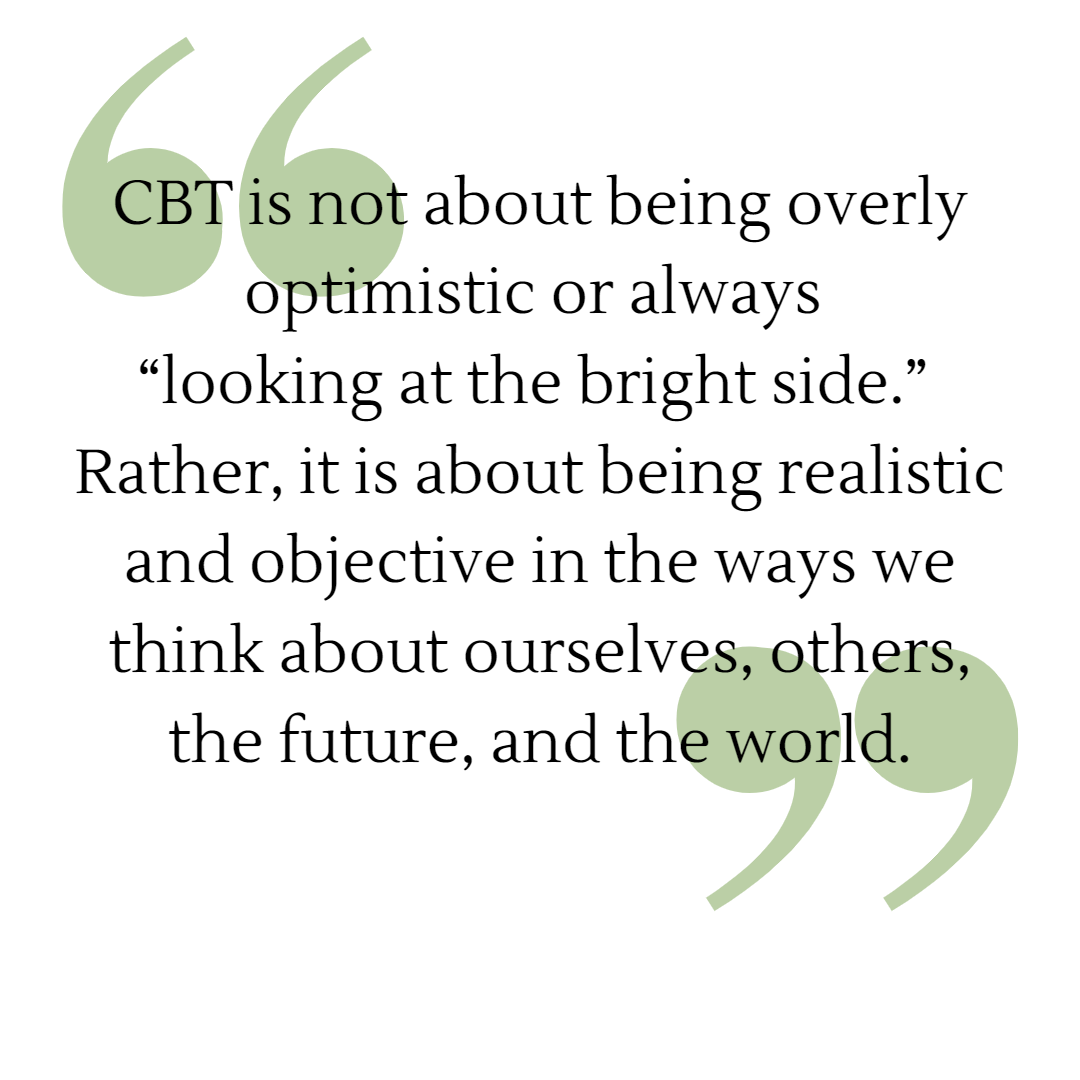Cognitive Behavioral Therapy (CBT)
Cognitive behavioral therapy (CBT) is a short-term form of psychotherapy based on the idea that the way someone thinks and feels affects the way he or she behaves.
CBT aims to help clients resolve present-day challenges like depression or anxiety, relationship problems, anger issues, stress, or other common concerns that negatively affect mental health and quality of life.
when it is used
Panic disorder
Posttraumatic stress disorder
Schizophrenia and psychosis
Specific phobias
Substance use disorders.
Depression,
Bipolar disorder
Eating disorders
Generalized anxiety disorder
Obsessive-compulsive disorder
goals of treatment
Identify, challenge, and change maladaptive thought patterns in order to change their responses to difficult situations.
what to expect
CBT is a structured form of psychotherapy that can occur in a relatively short period of time—often between 5 and 20 weekly sessions, generally around 45 to 50 minutes each.
Therapists and clients work together with a mutual understanding that the therapist has the theoretical and technical expertise, while the client is in the position of being the true expert on themselves and their experiences. Goals are set to resolve present-day problems. Clients actively participate in treatment in and out of session, often through homework assignments.

